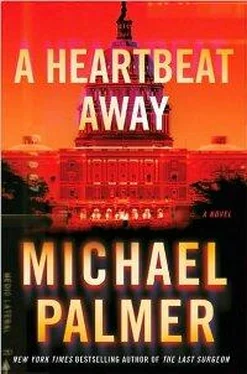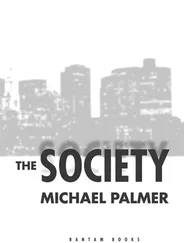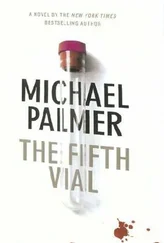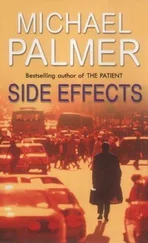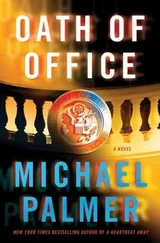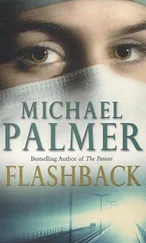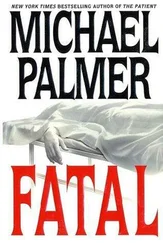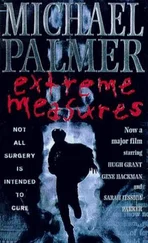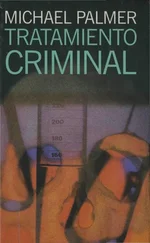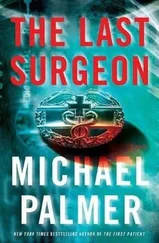Unless the rebel, Rhodes, came through—and Rappaport strongly doubted that was going to happen—it would not be long before the call came summoning him to D.C. to assume the presidency. His mouth went dry at the prospect.
“Come in,” he called, pulling on a terrycloth robe.
Janet Fox, the Secret Service agent covering him on the graveyard shift, slipped inside. She was dressed for the high plains winter in ski pants and a furlined parka, but still looked cold.
“Mr. Roger Corum and two others are here to see you, sir,” she said. “They say it’s important and confidential. I’ve taken them next door and sent for backup to help me check them over.”
“That won’t be necessary, Janet.”
“I’m afraid we have our orders about that, sir. Straight from the top.”
“Oh. I understand. Do what you have to do. I won’t get in the way.”
“Hopefully things will get better at the Capitol soon, sir.”
“Hopefully so.”
But I don’t see it happening .
Rappaport had showered, brushed his teeth, and brewed himself a cup of coffee when Fox returned. He wondered what could be happening at this hour that was so important to the Staghorn people.
At last report, five or six hours ago, Corum and his technical crew were making rapid progress, and would probably finish establishing their state-of-the-art security and monitoring system by the end of the day. The final task would be the most important—installing monitoring cameras inside the Kitchen. If Rhodes failed, the system would still be put to good use.
One of Rappaport’s first acts as president would be to beef up the Kalvesta facility as the jewel in his administration’s bioterrorism research and counterinsurgency force. That division of his new-age army would be only the beginning of an all-out war to secure national borders, keep out illegal aliens, and quash terrorism—a comprehensive approach that would dwarf all such efforts to date. Allaire had done a half-decent job battling a complex problem, but Paul Rappaport would go down in history as the president who made it safe to live in America.
After Janet Fox assured him that the officials from Staghorn Security were “clean,” she led them in and directed them to the conference/monitoring area set up in one of the large front rooms. In less time than Rappaport believed possible, Corum and his team had mounted three digital touch-screen maps to the bungalow walls. The maps allowed the Homeland Security Chief to track threats against the United States from any number of terrorist organizations, domestic or international.
In the room across the hall, there were several computer workstations, and two satellite phones, one of which had a dedicated connection to the Hard Room at the Capitol. Marguerite Prideaux and Colin Whitehead followed Corum to the conference area, each carrying a mug of coffee. Their expressions were grim.
“What’s going on?” Rappaport asked once the four of them were settled in around his small table.
“We were in the process of getting the communication hub online with the new monitoring equipment,” Corum said, “when one of Marguerite’s workers picked up a transmission from the laboratory’s intercom phone system. Here, have a look.”
Corum handed Rappaport a stack of printed-out pages. The three security experts waited patiently while the secretary of Homeland Security read. When he finished with the transcript, Rappaport set the pages facedown in front of him.
“What do you make of this?” he asked.
Pallid, cachectic Colin Whitehead answered for the group. He was an Ivy League intellectual—Yale, Rappaport thought he remembered.
“We aren’t sure,” Whitehead said. “We’ve had to shut down all laboratory video feeds in order to get the new board and the updated equipment installed. All we can monitor for about another three or four hours are conversations within the various rooms down there, and also the phones.”
A coughing jag cut Whitehead’s explanation short. Rappaport heard the mucus rattling in the man’s chest and grimaced. Ivy League or not, he detested smokers. The stench was bad enough, but he found the weakness of the habit even more reprehensible. Once his antiterrorism program was underway, with all that it entailed, he would turn his attention to shoring up borders and intensifying the war on drugs. Included in that war would be a jihad against smoking and smokers.
Marguerite Prideaux picked up where Whitehead had left off. Her French accent was pleasing to the secretary, as was her shapely body, and her self-confidence.
“It seems the virologist working at this moment down below us believes that he has a cure for the infection in your Capitol building,” she said. “And he has now intentionally exposed himself to the virus to prove it.”
“And do you believe from this conversation you recorded that he has a cure?”
Corum spoke up again.
“We unfortunately don’t have the video to confirm what is going on in the lab right now, but the answer to your question is yes. He sounds quite confident, actually.”
“I can still call down to Rhodes, yes?”
“Of course. The intercom will reach him in any room, and because he might still be helmeted, and wouldn’t hear as well over the rushing air, lights will flash all over to tell him there’s a call.”
“You people think of everything,” Rappaport said.
“Competition is fierce in our field,” Prideaux replied. “We must stay always one step ahead.”
“I feel exactly the same about politics,” the secretary said, chuckling. “Listen, for the time being, I’m going to assume Rhodes is onto something. But he’s as slippery as a greased eel, and I don’t trust him. I’m going to call down on the intercom and see if I can get some information from him. Meanwhile, see if you can get the video monitors working in the lab ahead of schedule. I don’t have the least desire to go down there and put on one of those biosuits. If Rhodes survives what he’s done, I’ll have to confirm it, and then get in touch with the president. Getting a direct look at him will help.”
DAY 9
2:00 P.M. (EST)
Angie’s headache was not nearly as bad as the doctors had predicted it might be. There was a mild throbbing above her eyes where the fracture was, but nothing more—at least not yet.
As instructed in the fax from Griff, she had taken the subway from the station across the street from the hospital, but switched trains four times, twice to backtrack to previous stops. At each station, Angie subtly surveyed the crowd for anybody whom she had seen before. Her throat was dry and tight, and her heart beat like a drumline, but still she maintained what she thought was a calm, measured exterior. In a previous incarnation as an investigative reporter, she had learned a good many tricks of the trade of how to follow or avoid being followed. Some of those she employed now.
Convinced that she was alone, she finally took a cab from Columbus Circle to Penn Station, and boarded the Acela, the express train to Washington. The first-class car was nearly full, but she had managed to get a single separated by a table from another single.
The instructions in the fax had been explicit in every respect, but reading it left Angie concerned. After their long, loving early morning on the phone together, she had expected to get a follow-up call from Griff telling her that things were still going well with the treatment he and his computer program had created. Instead, a few hours after their conversation had ended, she had a surprise visitor—Wu Mei, the stunning young charge nurse from the Riverside Nursing Home.
Mei was overjoyed to find Angie ready for discharge, and shyly handed her a small box of Chinese candy and a manila envelope containing the fax. Griff had been meticulous in his preparation, and had clearly chosen this route of delivery as the one he could trust more than any others. The cover page with the fax explained that this was an emergency, and that Wu Mei was to be called immediately to bring it to Angie Fletcher at Lower Manhattan Hospital.
Читать дальше
